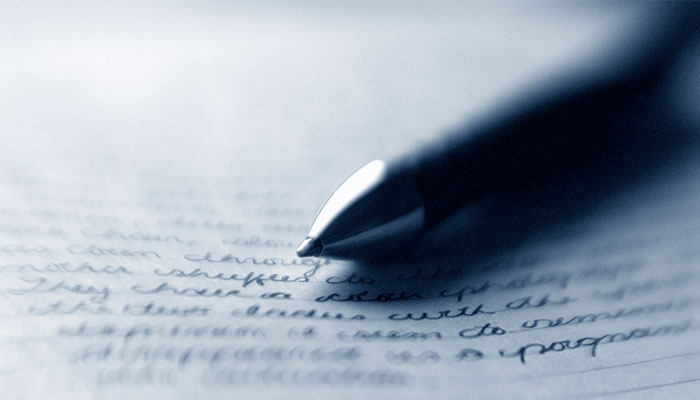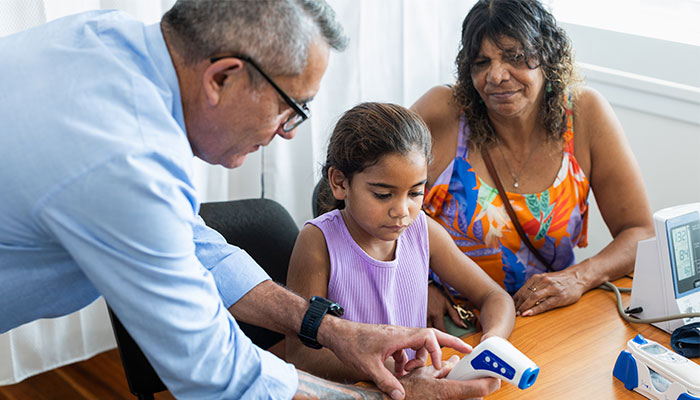A new study has found people who reflect on times they have successfully coped with difficult situations can feel better prepared for future stressors than those who focus on times when they have not coped as well.

The study focused on church ministry workers and included ministers, chaplains and other pastoral support workers.
As a group, they are exposed to high levels of work and emotional loads, including grief and loss, and their professional and private lives often overlap as they frequently receive calls out of work hours, researchers say.
Like many people who provide care and support for others, their own support needs may go unmet, and consequently, they have a high level of stress and burnout.
As part of the five-week study, 254 ministry workers were asked to spend 15 minutes a week writing about a difficult situation from the previous week.
One group was asked to reflect on an incident with which they had successfully coped; the second to reflect on one where they had not successfully coped; and the third to simply write a description of a stressful event.
Descriptive writing has been used for many years as a way of working through difficult events, and self-reflective writing has been demonstrated to assist with building resilience.
Participants who reflected on successful coping reported they were still feeling more resilient six months afterwards.
The latest trial aimed to clarify whether self-reflective writing brought more benefit than descriptive writing. It also aimed to discover whether focusing on successful versus unsuccessful coping attempts in self-reflective writing, irrespective of how stressful the experience, brought the most benefits.
To measure this, the participants were assessed four times: immediately before the trial began, immediately after it finished, then again at the three-month mark, and finally at the six-month mark.
At all four points, self-reflective writing was more effective for building perceived resilience than descriptive writing alone. However, reflecting on instances of successful coping proved to be the most effective for maintaining this resilience in the longer term.
The results of the study have been published in Stress & Health, in a paper written by Macquarie University psychology researchers Kirsten Bucknell, Professor Maria Kangas, Dr Eyal Karin and Associate Professor Monique Crane.
Small stressors vs big trauma
Associate Professor Monique Crane has been researching resilience and coping behaviour for 12 years, and she says the way people develop resilience has not previously been well understood.
“We knew that people who possessed certain capabilities– such as seeking appropriate support from the right people, who have a sense of coping efficacy, and engaging in effective problem solving – also tended to be more resilient,” she says.
“What was less clear was how and when they were developing these capabilities across the life course and what differentiated them from people who did not have them.
“Without knowing this, it has been difficult to develop effective interventions that sustain their effects long term and training for people who are low in these areas.”

Previously, researchers focused on exposure to highly stressful or traumatic events as a way of building resilience. For most people, however, these events are not common occurrences, and reflecting on them is often too distressing to be of much help in developing coping strategies for the future.
In previous research, Associate Professor Crane and her colleagues have shown that reflecting on the everyday stressors, such as conflict at school or at work, provides a valuable way to develop the resilience to deal not only with these ordinary events, but also with more challenging incidents.
“Because these smaller difficulties happen frequently, they provide regular opportunities to consider how we have reacted, learn from that, and test possible new ways of coping for next time,” she says.
“This insight doesn’t always develop quickly. It can take a few instances of the same thing happening, and reflecting on it, before you have the light-bulb moment.
“We think this method is effective because it more closely mimics experiential learning, which is the way we learn many other things life."
In this latest trial, one of the most important findings was the length of time the benefits lasted.
“The participants who reflected on successful coping reported they were still feeling more resilient six months afterwards," Associate Professor Crane says.
“This is quite significant, because with most resilience training, people initially feel they are prepared for future events, but within a month or so, the benefits have usually worn off.”
How does self-reflection help?
Associate Professor Crane says a big factor in developing resilience is coping self-efficacy, or the belief that you can cope with difficult things.

“If you have experienced something once before and used some strategies that were effective, it is easier to believe you can do it again,” she says.
“That’s what we wanted to understand in this study: whether it is more effective to support that sense of coping efficacy or to highlight the gaps in people’s coping that they need to develop."
People with this higher coping self-efficacy are not born more resilient, nor have they already built up all the tools they need to cope.
“It is more that they feel confident they can reduce the effects in some way, seek out new strategies, perhaps by asking someone else for advice or by doing some reading, and then test them and assess whether they are effective," she says.
“Most resilience training is based on cognitive behavioural therapy, and it assumes gaps in the person’s knowledge then provides strategies to deal with them.
“This method of investigating options and trialling them for ourselves is different because it recognises that for people who are generally well, they can be the experts in themselves. And with the right techniques they can judge the success of their coping and how coping strategies might be applied moment-to-moment depending on the goals in that context.”
- The forgotten female history of side-gigs in regional Australia
- Hospital noise as loud as a lawn mower: new sleep data sparks aircraft-style solution
Associate Professor Crane and her team are using the findings from this study and their previous research to develop a new resilience training program that includes self-reflection. They hope it will be more broadly available later this year.
How to journal for resilience
Many people find mental health benefits in journaling or keeping a diary to make sense of daily events.
“The beauty of writing is you can go back and look at it again, and see patterns forming over time, which can help lessons from individual events inform broader insights,” Associate Professor Crane says.
“It also helps people get some distance from what is going on in their head."
Successful coping practice in our own lives gives us underrated gems that we can all tap into.
“If we have good examples of having coped well prominent in our minds, we can apply them in the future and help support our sense of coping efficacy.
“If you dealt with something well, then perhaps you can think about what you did to contribute to that outcome, and what might have been different from other times where you might have coped in a way that did not allow you to achieve your goals.
“Was it about how you thought about the stressor, whether you gave yourself space to plan, or whether you’ve had some exercise recently?”
If you would like to incorporate elements of reflection into your own journaling practice as a way of building resilience, Associate Professor Crane recommends beginning by asking yourself these questions:
- What happened?
- How did I react and try to cope?
- What are my goals in this situation?
- Are the things I am doing getting me closer to my goals?
- What would I do again to cope with a similar situation?
- What else could I try next time?
- Where could I go for some advice?
Monique Crane is an associate professor in the Macquarie University School of Psychological Sciences. She leads the Resilience Research and Training Systems Team at the Macquarie University Performance and Expertise Research Centre.



